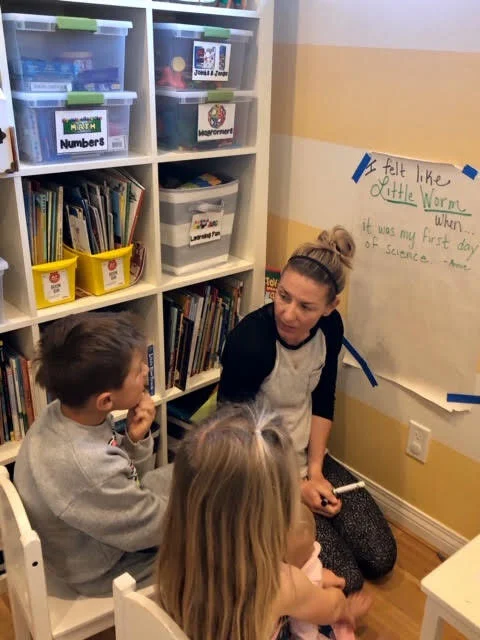Recently, Little Worm grabbed the attention of professionals who shared thoughts about the book. Houston Family Psychology posted a review on the Blog section of the website. Hearing how the book was used in a clinical setting matched perfectly with how I imagined professionals could utilize Little Worm in session with young clients. A portion of the review reads:
Next, I brought the book to work, where I read it with some of my young patients. All of the children were drawn in by the bright, colorful pictures and rhyming prose, and seemed to enjoy the story, and some of them opened up more than usual about their anxious symptoms and concerns after reading this book. The children who opened up the most were ones who could relate to Little Worm more, specifically children who experience physical symptoms in response to anxiety and children who have difficulty dealing with changes of plan.
For other posts with valuable information, visit the Houston Family Psychology Blog and click around! I know you'll land on something useful.
Additionally, the Midwest Book Review had these words to share about Little Worm:
Today is the day: Little Worm is going to run a whole mile! But oh no, it's raining! Little Worm starts to feel sad, and then he feels funny. He's so disappointed. Little Worm has been looking forward to this day for weeks. What if he can’t run at all today? Enhanced for children ages 3 to 7 with illustrations by Armando Loredo, "Little Worm: A Story about Worry" by licensed marriage and family therapist and a registered play therapist, Laura Ann Elpers Pierce deftly models how to handle worry and anxiety when things don't turn out the way we expect. Children will delight in joining Little Worm as he learns how to readjust his plans and work through his anxiety! Thoroughly 'kid friendly' and entertaining in tone, content, and presentation, "Little Worm: A Story about Worry" is very highly recommended for family, daycare center, preschool, elementary school, and community library collections.
The Midwest Book Review has been reviewing books 1976, and it's an honor to have been included in their publications this month!
For many other reviews, you can log into your Amazon account and scroll through the numerous supporters who have left their thoughts and love for Little Worm.
If you have thoughts about Little Worm that you would like to share, email me at feelingfriendsbooks@gmail.com.







